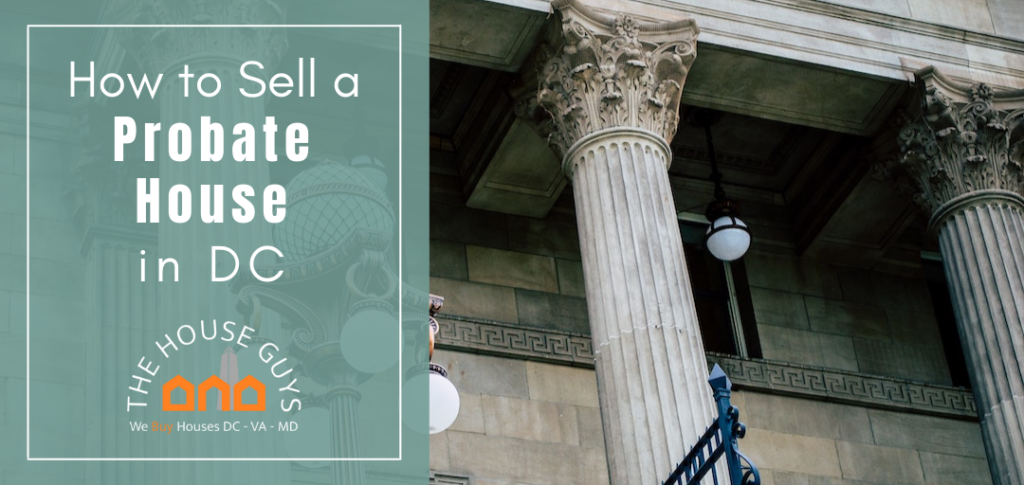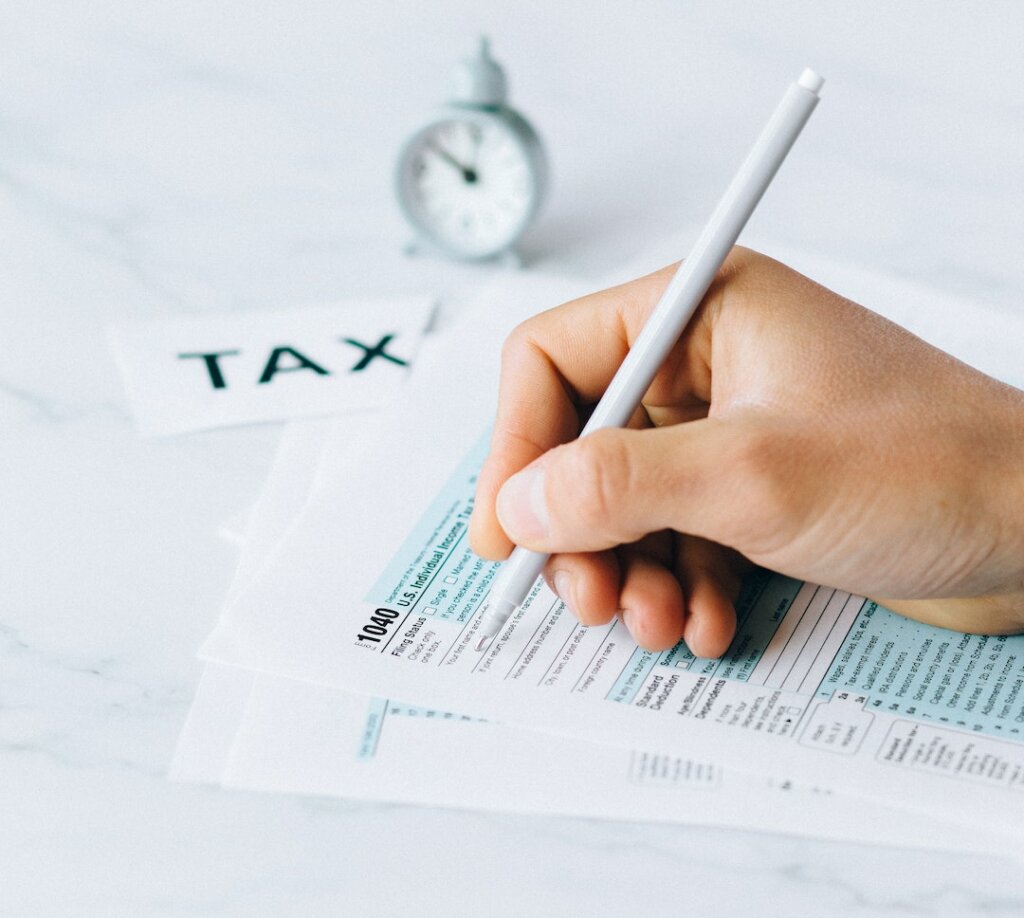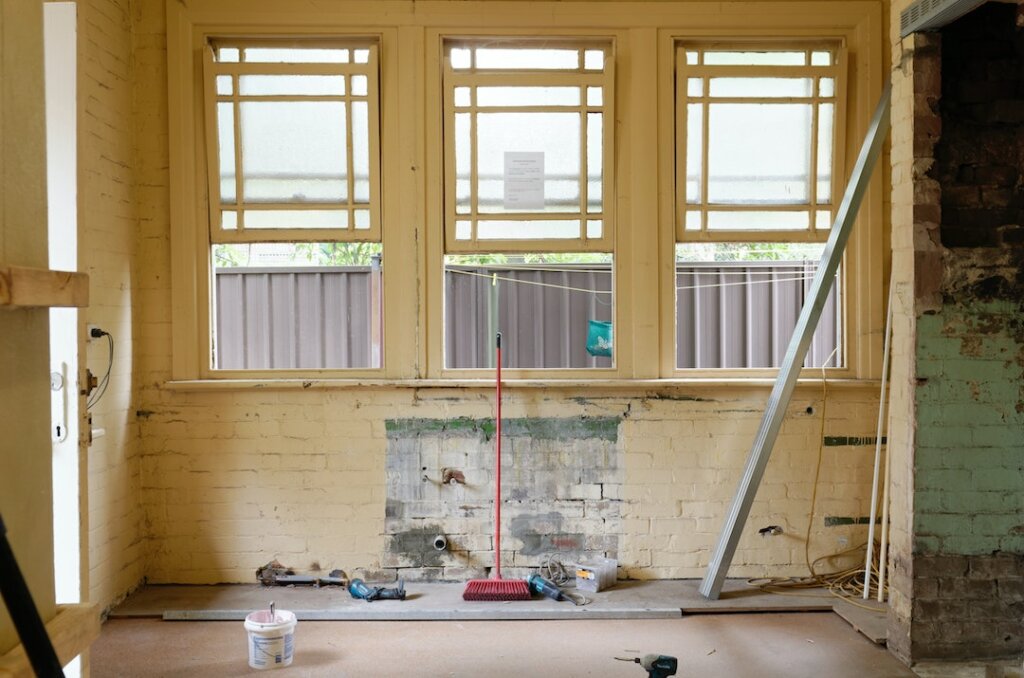
When a loved one passes away, there is a lot to deal with… not just emotionally but financially, as well. If you’re looking to sell the property, it’s natural to want to get the home sale started as soon as possible. However, unless you have court approval, probate must be completed before selling a house in Washington DC.
If you are in charge of selling inherited property in Washington DC, check out our complete guide to ensure the probate process goes smoothly. This guide will step you through the required documents to file for probate in Washington DC, as well as associate probate costs and home sale tips. Continue reading for in-depth details on selling your inherited property in DC.
- A house in probate in Washington DC may be sold with court approval but most commonly is sold once probate is complete.
- Washington DC requires an estate tax on probate property (but no inheritance tax).
- Selling with an agent will require fixing up the inherited house whereas selling to an investor can be done as-is.
Probate Process in Washington DC
What is Probate?
Probate is the legal process of collecting and distributing assets of someone who has passed away. Further, probate includes appointing a personal representative (also known as an executor) and paying the decedent’s debts.
How Long is the Probate Process In DC?

The probate process can take anywhere from eight months to over a year in Washington DC. Probate is a complex process that begins with a person filing the required papers for probate. Then, a person will be appointed as the personal representative by the probate court.
The personal representative must collect the decedent’s assets. He/she will need to manage any claims, liens, or bills and the expenses of probate. The personal representative is also in charge of communication with the interested person(s) on the progress of the estate administration.
Further, the personal representative must submit the decedent’s final tax returns, create an Inventory and accounts (including a final account), and distribute the assets to the entitled persons. The more complicated the estate, the longer you can expect probate to take in DC.
Where Do You Probate A Will in Washington DC?
If the decedent owned real estate and lived in Washington DC, his/her estate can be opened in the Probate Division of the Superior Court of the District Columbia.
This is the only probate court in DC located at 515 Fifth Street, NW, Third Floor, Washington, DC 20001. Check out their website for hours of operation and scheduling an appointment.
What Documents are Required to File for Probate?
The documents required to file for probate depend on whether you are filing a small estate or large estate. A small estate classifies as all of a decedent’s assets valuing $40,000 or less. A large estate can be opened in DC for assets valuing any amount. All large estate DC probate forms can be found on the District of Columbia Courts website.
Documents Required to File for a Large Estate
1. Original Will
The original will must be filed within 90 days of the decedent’s death along with the certificate of filing a will form. If there is no will but the decedent had assets, the decedent’s estate must still be probated. The decedent’s next of kin has priority to file a petition for probate and serve as executor (this must be approved by the court).
2. Petition for Probate
Washington DC’s petition for probate form must be completed and include all information according to DC Code 20-304.
3. Abbreviated Probate Order
If you filed for an abbreviated probate (instead of standard probate) in the petition for probate, you will need to complete an abbreviated probate order form.
4. A Notice of Appointment, Notice to Creditors and Notice to Unknown Heirs

Pursuant to DC Code 20-704, the personal representative must provide notice to interested persons, creditors, and unknown heirs within 20 days of being appointed. This notice is to inform these persons of the personal representative, as well as administrative supervision. It also gives creditors a chance to present any claims on the estate. This can be given through this DC notice of appointment form.
5. Personal Representative Bond
The personal representative bond is a type of insurance. If the personal representative mishandles the estate, the bonding company will repay the estate up to the amount of the bond. However, this bond can be waived by the will or by the heirs of the estate.
a. The personal representative shall submit a bond to the District of Columbia for the benefit of interested persons and creditors with a surety or sureties approved by the Court per DC Code 20- 502(a).
b. If all heirs waive bond, a waiver of bond form from each interested person is required.
c. If the decedent’s will waives bond, no bond or waivers of bond are required from the personal representative.
Probate Costs In Washington DC
There are several costs associated with a house in probate in Washington DC. These probate costs include court costs, estate tax, reimbursement to the personal representative, attorney’s fees (if applicable), and a personal representative’s bond (if not waived).
Court Costs

Court costs vary depending on the value of the probate estate. There is a baseline fee of $25 if the decedent owned real estate in Washington DC. Additional court costs are typically required and the breakdown for a large estate can be found here.
Reimbursement to Personal Representative
There is no set rate of compensation for a personal representative in DC. For large estates, the standard rate is “reasonable” compensation. There are online calculators to approximate the amount of compensation a personal representative in DC could expect to receive.
Probate Attorney Fees
Some probate attorneys charge by the hour while others charge a flat fee. The good news is the probate attorney can be paid using the estate assets rather than the personal representative’s money. A probate attorney can either handle the entire probate case or assist the personal representative.
Personal Representative Bond
The price of the personal representative bond is determined by the bond amount. The court will determine the bond amount based on the valuation of estate assets. A bond can be purchased from a surety company (a probate bond is a type of surety bond).
Paying Taxes on Inherited Property
Inheritance Tax
There is no inheritance tax in Washington DC.

Washington DC Estate Tax
The estate tax return must be filed by the personal representative within 10 months after the decedent’s death. This requires creating an estate tax account at MyTax.DC.gov.
The estate tax return includes electronic submittal of form D-76, accompanying documents such as a copy of the will, and the correct payment amount. If more time is needed to file, form D-77 can be submitted for a 6 month extension.
Federal Estate Tax
A federal return must be filed when the total of the gross estate plus all lifetime taxable gifts (other than “annual exclusion” gifts) exceeds the “applicable exclusion amount” (specified in federal law) for the year of the decedent’s death. The amount is adjusted annually for inflation, so it is important to check the exclusion amount for the year of the decedent’s death.
Decedent’s Income Tax
The decedent’s final income tax return covers the portion of the last calendar year that the decedent was alive. For a calendar year taxpayer (someone not filing quarterly taxes), the decedent’s final federal income tax return is due on April 15 of the year following the decedent’s death. In addition, his/her DC income tax return is due on May 1 of that year.
How To Sell Inherited Property in Washington DC
Once probate is complete, the home selling process can begin in DC. An inherited house leaves you with options for the sale. Should you work with an experienced real estate agent? Or, should you sell the house to a real estate investor (sometimes referred to as iBuyers)? The answer depends on your situation, and we will explore some scenarios to help you make the right decision for your inherited property.
Should I Fix Up my Inherited House before Selling?

The process of fixing up an inherited property varies from person to person depending on the condition of the house. You’ll probably want to make some upgrades and take out any memorabilia you or your siblings want to keep. You can also work with an estate sale service to list and sell all remaining belongings in the house before selling.
If you’re looking to sell with a real estate agent, there will be repairs to make on the house if you want market value. When making upgrades focus on the necessary repairs such as plumbing leaks, broken windows or doors, and a leaky roof. All of these tasks will depersonalize the house and help attract buyers who will pay full price.
Advantages of Selling Inherited Property As-Is
Another option is working with a local cash home buyer who can purchase the property as-is, so you don’t need to spend time or money on repairs. A local investor is a good choice when you live far away from the property you inherited or just don’t want to deal with the hassles of bringing the house up to market standards.
How Do I Sell My Probate Property Out-of-State?
A real estate investor is a great option for selling an inherited home if the executor or any beneficiaries are not local to where the property is located. An investor can purchase the house fast in as-is condition for cash, so the surviving spouse or inheritor(s) don’t have to hassle with hiring contractors to fix the place up.
In addition, open houses and realtor fees can be avoided with a cash home buying company. Fast forwarding past this work will make selling a property from out of state much easier. If there are tenants living in the property you inherited, an investor can still buy your property, as well.
Unlike selling on the market with a real estate agent where buyers require financing and include contract contingencies (such as formal inspections and appraisals), a “We buy houses” company offers a fast, guaranteed sale through a cash offer. A virtual closing will allow you to sign the required closing documents out of state, so you can get paid for your inherited home in Washington DC.
Alternatives To Selling a House you Inherit in Washington DC
Rent it Out
Want a second stream of monthly income? Consider renting out your inherited property or posting it on AirBnb. Depending on the DC neighborhood, this could be a profitable investment. You can also take advantage of the appreciation by holding onto the probate property. If you live far away, create a plan, as managing real estate from a long distance can cause more headaches than the monthly income is worth.

Move into the House
If you’re not in need of cash from selling the inherited property, moving in could be more convenient and save you money if the mortgage is paid off. Not to mention it gives you more time to consider selling and upgrade the inherited property in the meantime.
Final Thoughts: Sell Probate House – Washington DC
After the loss of a loved one, selling inherited property in Washington DC can be a difficult process. There are many things to consider, and you should consult with an attorney before signing any of the legal documents. I hope this article has helped shed some light on what steps need to happen when selling an inherited home, as well as how to navigate probate in DC if you are the personal representative.
If you want to sell an inherited home in Washington DC, there is no better place than The House Guys for all of your real estate needs. We’re here to take the stress out of the probate process by giving you a fair cash offer. No matter what type of property you inherited, we are ready and waiting for your call today! (571) 207-5171

![sell house while in probate in [market_city]](https://image-cdn.carrot.com/uploads/sites/47550/2020/11/sell-probate-house-washington-dc.jpg)